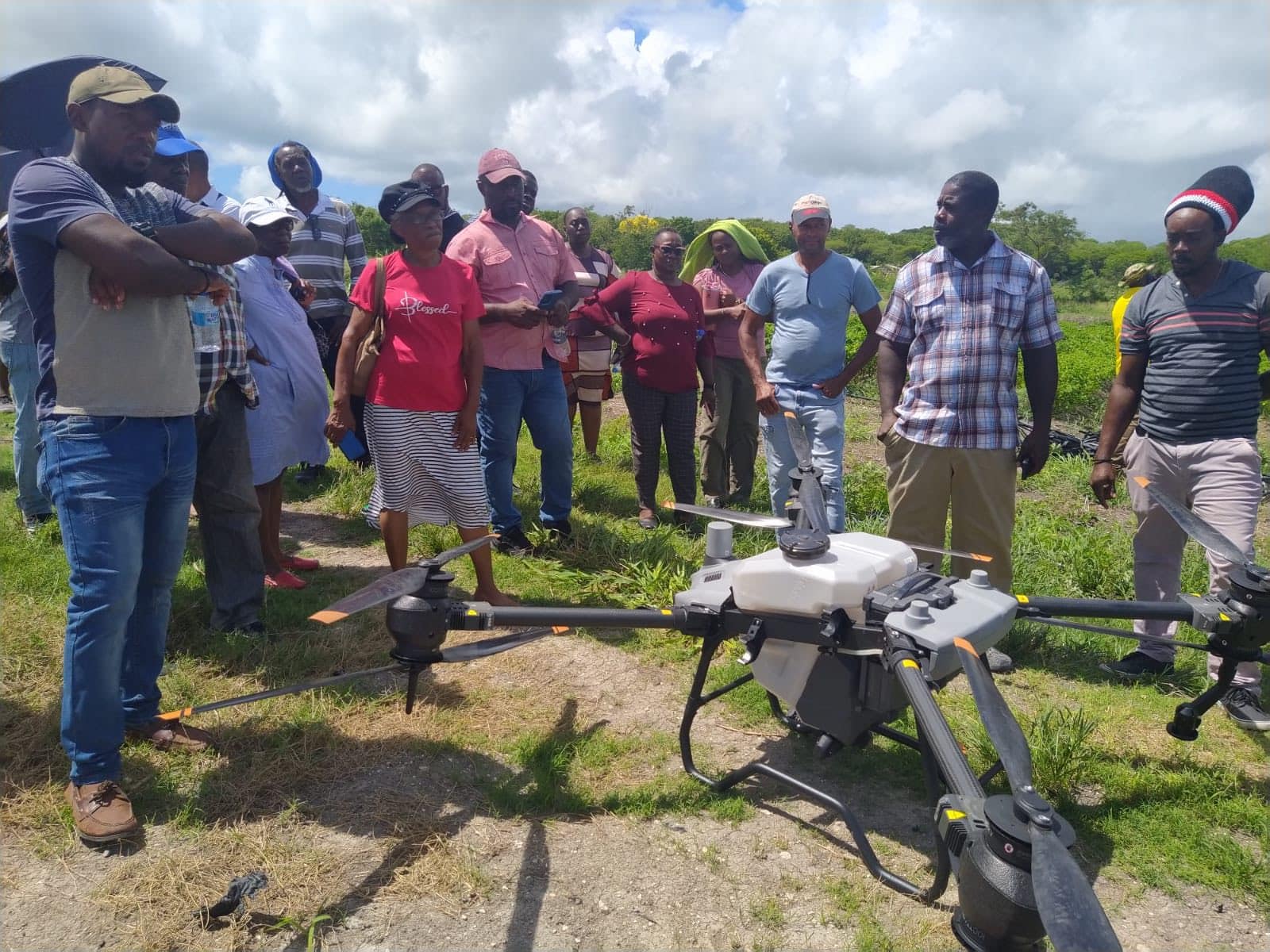The Food and Agriculture Organization of the United Nations (FAO), in partnership with the Ministry of Agriculture, Lands, Fisheries, and the Blue Economy, has launched a groundbreaking national workshop focused on digital solutions for horticultural crop management. Held at the Caribbean Agricultural Research and Development Institute (CARDI), the event brought together extension officers, farmers, backyard gardeners, and technical officers for hands-on training in Digital Agriculture and Soil Scanning. This initiative is part of the FAO FVC Digital Solutions Project, a regional effort designed to enhance farmers’ ability to manage data for better decision-making across the fruit and vegetable value chain (FVC). The project introduces cutting-edge tools and technologies that enable real-time collection, analysis, and sharing of agricultural data, thereby improving the efficiency, productivity, and sustainability of small- and medium-scale farming operations. Mr. Ika Fergus, FAO National Correspondent, and Mr. Adrian Bowen, National Focal Point, are leading the local implementation. They highlighted the initiative’s goal to bridge the gap between traditional farming and digital transformation by providing practical knowledge in data management, crop monitoring, and soil information systems. A significant focus of the workshop is soil scanning integration, which combines field data, laboratory analyses, and satellite imagery to create detailed maps of soil types, fertility, and suitability. This approach allows farmers and technicians to make informed decisions on crop selection, fertilizer use, irrigation planning, and land management. Facilitators noted that these digital mapping tools will help the Ministry develop a national soil information system, supporting horticultural development, broader agricultural planning, and climate resilience. Participants will also be trained to upload and interpret data from their districts, ensuring the technology is practical and community-centered. This workshop exemplifies how innovation and information technology are revolutionizing food production, management, and marketing in Antigua and Barbuda.
FAO Launches Digital Agriculture Workshop to Boost Horticultural Crop Management
